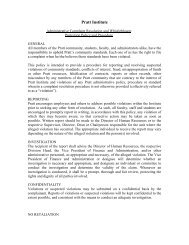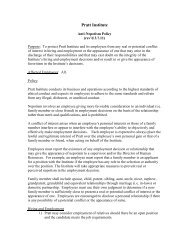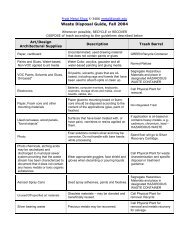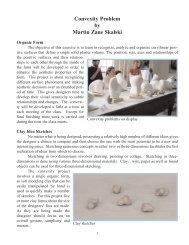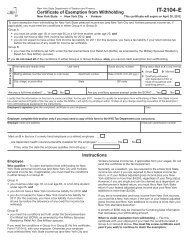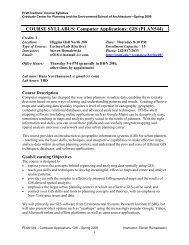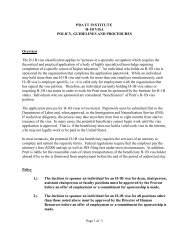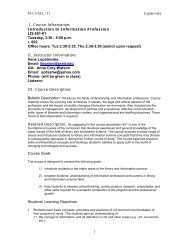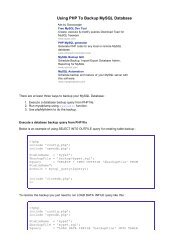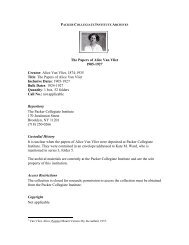Setting Goals - Pratt Institute
Setting Goals - Pratt Institute
Setting Goals - Pratt Institute
You also want an ePaper? Increase the reach of your titles
YUMPU automatically turns print PDFs into web optimized ePapers that Google loves.
10<br />
Rating tendencies to avoid…<br />
‣ Recency Effect/Sampling Error<br />
• basing an entire review on just the last few months or a specific incident<br />
It is a common tendency for supervisors to give too much weight to an employee’s recent work performance or a<br />
single notable issue since it is fresh in the supervisor’s mind and easier to recall. It is important to give a<br />
comprehensive and balanced review of the employee’s performance throughout the entire review period. It is helpful<br />
to keep track of your employees on a regular basis and keep a record of any projects they are working on. Keep<br />
notes, work samples, etc. for your employees throughout the year to chart their accomplishments and also note their<br />
progress.<br />
‣ Halo/Horns Effect<br />
• addressing only one particular performance area and generalizing it to the entire evaluation<br />
It is crucial to give employees a fair and accurate assessment of all aspects of their work performance so they are<br />
aware of and can address their relative strengths and weaknesses. An employee may excel in one area but need<br />
improvement in another. Employees likely won’t develop their skills and abilities sufficiently if they are not given an<br />
accurate and full picture of how they are doing.<br />
‣ Leniency Bias<br />
• giving overly generous ratings<br />
There can be a tendency for supervisors to give inflated performance ratings to employees, to avoid a difficult<br />
conversation with the employee and having to give constructive criticism. This dilutes the integrity of the appraisal<br />
and often leads to increased performance issues if employees aren’t counseled on what they need to work on.<br />
Performance reviews should include honest and straightforward feedback to the employee.<br />
‣ Strictness Bias<br />
• rating employees too harshly<br />
• Conversely some supervisors are too hard in evaluating employees. This can backfire by demoralizing employees<br />
who may feel their contributions are not fully recognized or appreciated. Although constructive criticism is important,<br />
the appraisal should also be balanced and acknowledge where the employee has done well.



